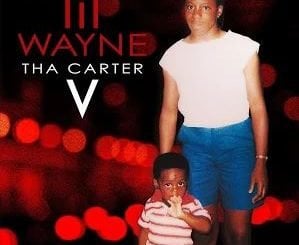Kendrick Lamar’s “Wesley’s Theory” Lyrics Meaning
On “Wesley’s Theory”, Kendrick Lamar raps about the challenges of black entertainers and how they are somehow ‘pimped’ by the industry. He talks about how they are made to focus less on change, become selfish and ultimately sap them of their money through stringent tax laws.
The song carries the album’s theme by talking about the caterpillar’s cycle and how the entertainment industry pimps talents who have grown into successful artists. The introductory lines iterate the point that black people can still make it irrespective of the institutionalized racism that fights them. Kendrick addresses the position that it is easier to hone one’s talent and become a star even if you were brought up in the ghetto, but once you get there, it is easy to lose your true self in all the money and fame presented to you. He then likens rap to a first love, describing how the relationship has transitioned from pure love to lust.
Central Theme
The main message the rapper points out is that success for black entertainers has been used as a form of entrapment. Thus, when they get to that level of fame and riches, they become more selfish and get satisfied at the fact that they are no longer poor. They end up failing to use their newly found wealth and fame as a means to speak for the voiceless, help those who still live in poverty and cause change in the black community.
His assertion is that these artists, who are being ‘pimped’ and distracted by carnal pleasures, easily forget their initial aspirations.
Summary
In all, “Wesley’s Theory” suggests that the entertainment industry as well as capitalist America takes advantage of successful black entertainers. In addition to this, it keeps them from helping their own by distracting them with material things.
Facts about “Wesley’s Theory”
“Wesley’s Theory” was unveiled in March 2015. It is the first track on Lamar’s studio album dubbed “To Pimp a Butterfly” (which won the “Best Rap Album” prize at the 2016 edition of the Grammys).
The song was written by the rapper alongside the featured artists, George Clinton and Thundercat, with support from the following:
- Boris Gardiner
- Flying Lotus
- Flippa
The last two also served as the producers of the song.
The song features part of the 1973 song titled “Every Ni**er Is a Star” which was recorded by Boris Gardiner.
Lotus, in one of his tweets, explained that he was surprised when they really got the opportunity to work with Clinton. According to him, he was asked who he felt would be perfect on the track when he first played the beat and he quickly mentioned George Clinton.
Contrary to popular belief this wasn’t one of the singles from Lamar’s iconic “To Pimp a Butterfly”. The Grammy Award winning project produced 5 singles, including “The Blacker the Berry“.
What’s the meaning of “Wesley’s Theory”?
The abovementioned phrase (which is the song’s title) refers to the income tax case of the famous American actor Wesley Snipes. Wesley ended up spending time in jail for failing to file certain income tax returns.
Wesley Snipe’s Income Tax conviction
American actor, film producer, author and director Wesley Snipes was charged on three counts of misdemeanor and six counts for failing to file income tax returns in 2008. According to the charges, Wesley had filed a false tax refund amounting to over $4 million in 1996 and another false tax refund claim for more than US$ 7.3 million in 1997.
Aside from these charges, he was also accused of sending fabricated bills of $14 million dollars to the Internal Revenue Service (IRS) and for not filing income tax returns between 1999 and 2004. In response to the charges, the actor declared that he was a non-resident alien in a 2006 letter, when in reality, he was a birthright citizen of the United States.
Although he was acquitted on the count of defrauding and filing false claims, he was on April 24, 2008, found guilty and sentenced to three years imprisonment for failing to file his income taxes. Douglas P. Rosile and Eddie Ray Kahn, his co-defendants, were however sentenced to 10 and four and half years in prison respectively.
Snipes served his three-year sentence at the McKean Federal Correctional Institution and was released in April 2013, to complete his time on house arrest in July 2013. After his release, the actor made attempts to pay back his tax debts, offering to pay an installment of $842,000. The IRS refused the offer, while Snipes argued to the US Tax Court that the IRS had abused its discretion. The US Tax Court in 2018 ruled in favor of the IRS stating that it had not abused its discretion.








